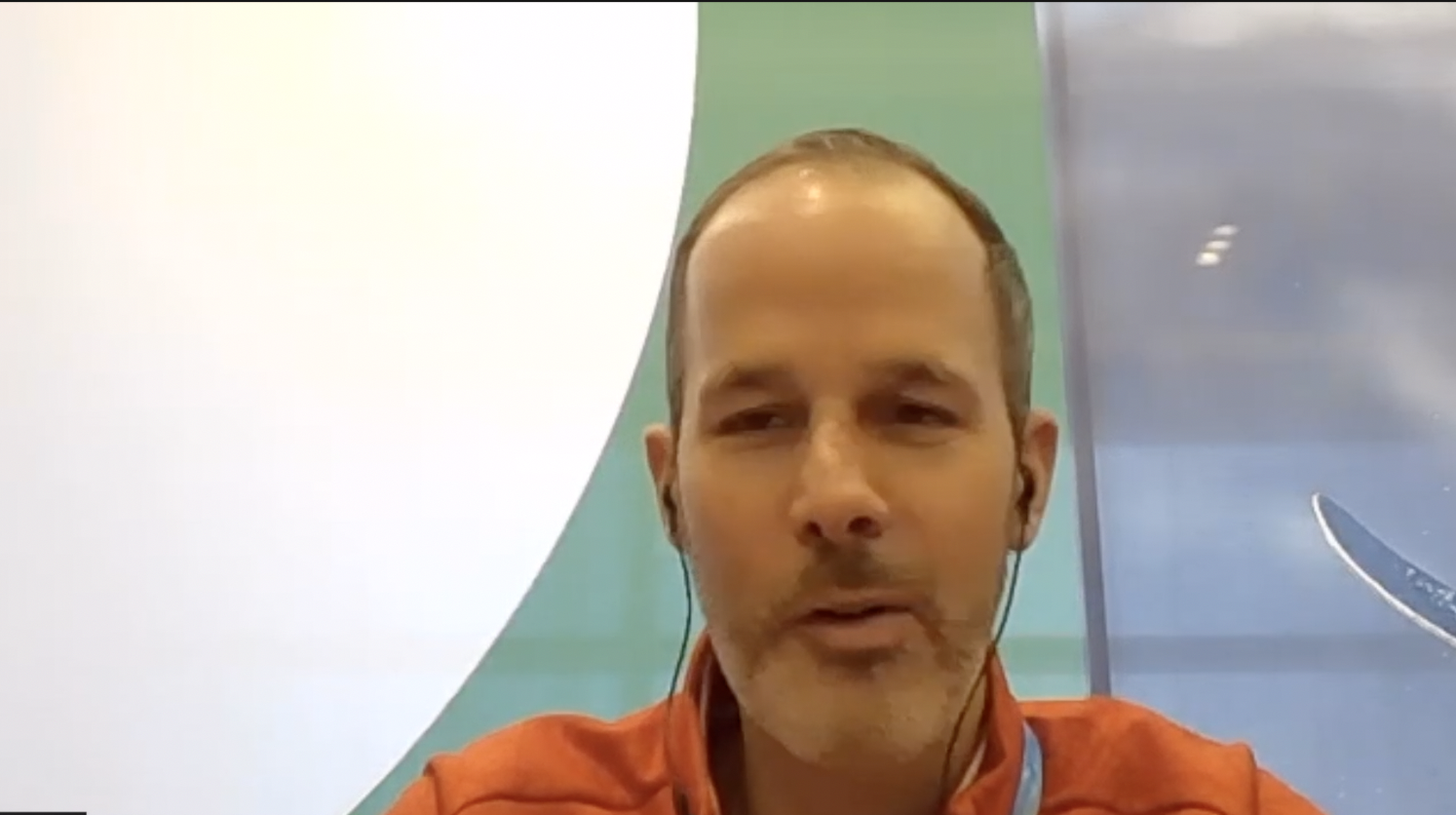03:09

Editor's note: Pierre Ducrey, the Olympic Games operations director at the International Olympic Committee (IOC), spoke to CGTN from inside the closed-loop system in Beijing on February 5. He talked about the innovative opening ceremony, COVID-19 prevention and control measures at the Games, and IOC's message this time around in Beijing. Ducrey also worked through the 2008 Beijing Summer Olympic Games.
Everything is going 'really well'
CGTN: The Games officially started Friday, but events have been underway for a few days now. How do you rate the operations so far?
Ducrey: We tend not to give scores and don't keep medal tallies this way. But the one thing to note is that everything is working very well. The organizers are doing a splendid job. I would say we are really looking at a very strong start from the organizers and we are all looking forward to very exciting Games.
There were a number of moments that were captivating (during the opening ceremony). But I would say that the one that always stays with me is the flame lighting at the end, because it really means now we're game on.
COVID-19 protocols: Definitely the right choice in order to protect the participants
CGTN: We have perhaps the strictest COVID-19 protocols many athletes have ever seen. How necessary are these measures? How difficult is it to pull it through? And for those unfamiliar with such protocols, what do you say?
Ducrey: The necessity is there. The first priority of the IOC and the organizers is always to protect the participants and protect the local population.
So obviously, you need to take all of the necessary measures to ensure everyone can be safe. We worked very hard with international experts to ensure we had the best possible plan for these Games and to leave no stone unturned in making sure we have the right measures in place.
We did that. We have the closed loop. And it really allows for the participants to do what they have to do inside and also away from the local population. At this level, the model seems to be working very well.
I would not say it's difficult (to pull through) but these are comprehensive measures to allow for everybody to come into this loop in a safe way. It is working. And we have been very pleased with this. We understand that by identifying positive cases upon entry in the loop, there have been some difficult situations for some participants. But in today's world, the pandemic world as we know, people are very well versed — especially athletes and people supporting events — about having a number of rules to follow. It is clear that you cannot participate in events the way we used to. So everyone has to adapt to the requirements of the moment. And it turns out that right now the situation is complex in the world. It is necessary to have a number of measures to protect the participants. And I think the people who come in here understand that those measures are necessary to protect them and the others, and ultimately to allow the Games to take place, which for many athletes is a once-in-a-lifetime experience.
CGTN: You were also with the Tokyo Games, which also took place with COVID-19 looming large. What has changed from Tokyo?
Ducrey: Tokyo allowed us to demonstrate that you can have, in today's world, a mass gathering of people from different countries in one place without creating any impact on the health of the participants or the local population.
So I believe it reassured everyone that doing the Games with the right protocols is absolutely possible. That was somehow the springboard that led to the Beijing Games without being questioned. We discussed what the measures would look like, but everybody was convinced we could do these Games. That's a very strong position to work from, we had established playbooks for the Tokyo Games, which is a model we used again for the Beijing Games, changing some of the measures to reflect the latest development. Typically, the closed loop in Beijing is not the situation we had in Tokyo, but it made sense here. And with the evolution of Omicron and the latest challenges that have been presented, it was definitely the right choice in order to protect the participants and the local population.
'We are here to build a bridge'
CGTN: From the ceremony to the next weeks of events, what are the messages for this edition of the Games?
Ducrey: I will use some of the words our IOC president said last night at the opening ceremony, "We are here to build bridges." That's what the Olympic Games are about. During the Games, we have people living together in the village and competing in a fair and transparent manner.
There is no denying that there are challenges worldwide, but at least what we are able to do is for a moment of time, and also beyond that moment of time, is this: we try to bring cultures together and reinforce relationships through sports. The only thing I want to say is please watch the Games. I think you will be amazed by what you will see. They will give you a great spectacle, and we can all look forward to really fantastic Games.
So look for it, enjoy it, embrace it.

